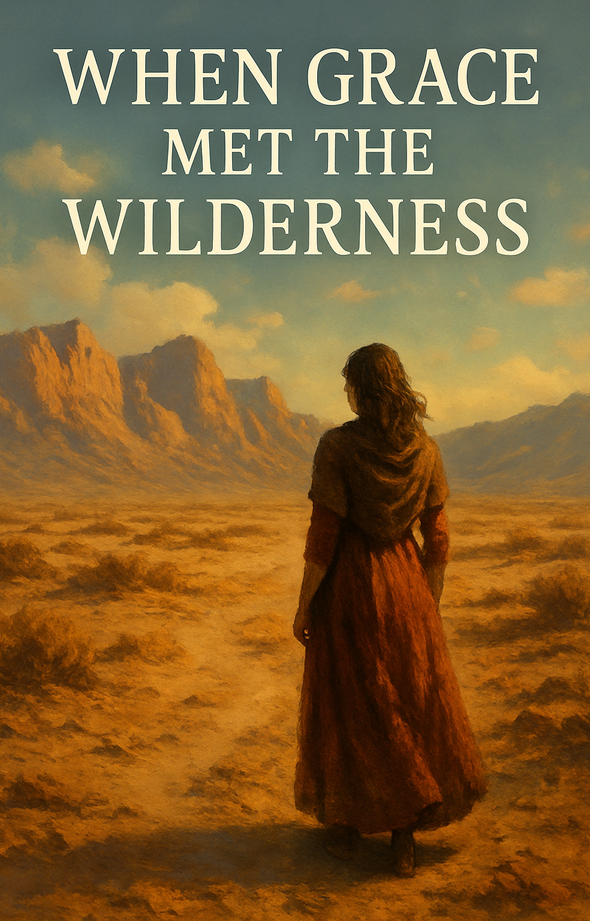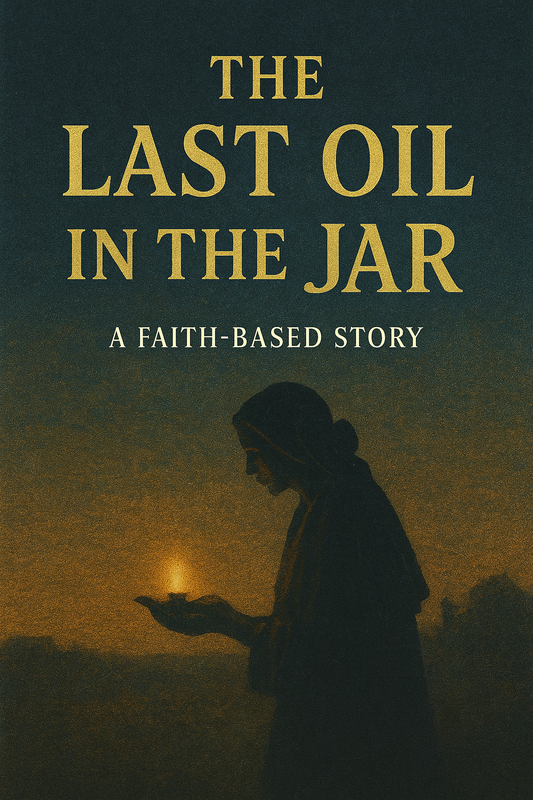
Faith-Based Story
When Grace Met the Wilderness
By Pinnacle Message
Narrative:
Mara had always known the feel of emptiness. After her husband left and her family turned their backs, she wandered emotionally and spiritually—like Israel in the desert. Her heart was dry, her prayers dust. She lived paycheck to paycheck, and her Bible remained closed on the nightstand like a forgotten well.
One evening, broken by a final rejection letter from a job she desperately needed, Mara walked out into the woods behind her rented apartment. With tears streaking her cheeks, she whispered, “God, if You’re out there, I’m here too... just lost.”
And there, beneath the hush of pine and the chill of the night air, something unexplainable happened. A breeze stirred—not cold, but warm like breath. Her shoulders relaxed. She felt wrapped in something invisible yet real. Not pity. Not coincidence.
It was grace.
Verses she hadn’t read in years flooded her mind like water bursting a dam: “My grace is sufficient for you.”
“I will make a way in the wilderness and rivers in the desert.”
In that moment, Mara didn’t receive a job or a miracle check in the mail. But she stood up differently. She walked back with a new knowing: she was not alone. God had met her in the wilderness. And grace had a name—Jesus.
Summary:
Mara, a woman shattered by rejection and abandonment, reaches her breaking point in the wilderness of her life. There, in the silence of pain, she encounters the sustaining power of God’s grace. No dramatic rescue—just the gentle, undeniable presence of God in the stillness.
Conclusion:
Wilderness is where many expect God to be silent. But for the faithful or even the faltering, it’s often where He speaks the loudest—not with thunder, but with grace. When grace meets your wilderness, it doesn’t always change the landscape immediately… but it changes you forever. And in that change, the desert begins to bloom.

The Last Oil in the Jar
By Pinnacle Message
Narrative:
The widow stared at the jar. It held just enough oil for one final meal. Her son sat nearby, unaware that this would be their last supper. Famine had consumed the land—and now, it was coming for them.
Then came the knock.
A man stood at the door, dusty from travel, calm with conviction. “Bring me a little water,” he said. “And a piece of bread.”
She hesitated. “As the Lord your God lives,” she answered, “I have nothing baked—only a handful of flour in a jar and a little oil in a jug. I’m gathering sticks to prepare it for me and my son, that we may eat it and die” (1 Kings 17:12).
The prophet Elijah looked at her and said, “Do not fear. First make me a small cake, then for yourself and your son. For the Lord says: The jar shall not be spent, and the jug shall not run dry.”
Faith warred with logic. But something in his eyes told her—this was God speaking.
She obeyed.
That night, they ate. The next day, she checked the jar. Still full. Day after day, the miracle continued. The oil did not fail. Nor did God.
Summary:
A widow on the brink of death is asked to give the very last of what she has. In her obedience, she unlocks divine provision—not just for herself, but for the prophet and her son. Her story becomes one of endurance, supply, and supernatural trust.
Conclusion:
God never asks us to give what we don’t have—He asks us to trust Him with what we do. The last oil in the jar wasn’t the end; it was the beginning of overflow. When obedience meets divine promise, even the smallest act becomes the stage for a miracle. When your jar is empty, Heaven’s hand begins to pour.
Please visit our donation page to receive your free gifts. Donation Page | PINNACLE MESSAGE
"I can't say enough about the outstanding service I received from your company. Their team went above and beyond to meet our needs and exceeded our expectations."
Oliver Hartman

